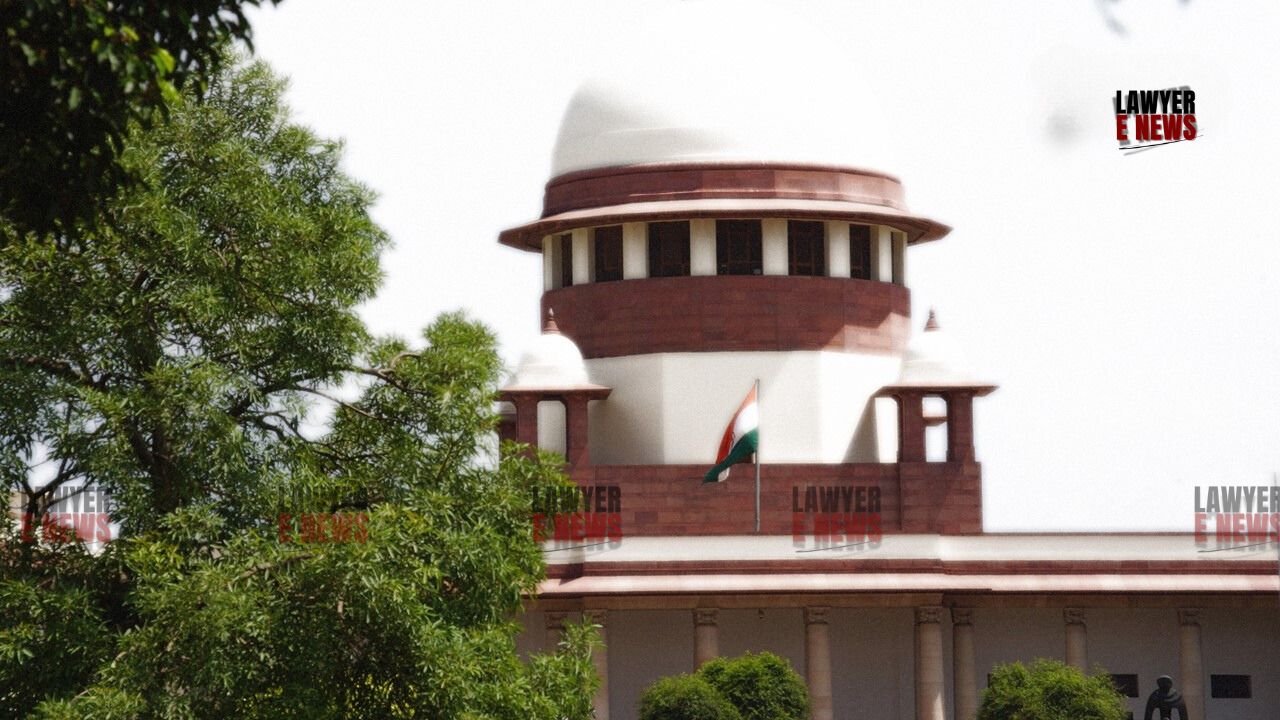-
by sayum
14 February 2026 2:22 PM



Supreme Court of India issued a significant judgment in M/s Arif Azim Co. Ltd. v. M/s Micromax Informatics FZE, ruling that Dubai, not India, held exclusive jurisdiction over the arbitration proceedings between the parties. The decision came in response to a Section 11 petition under the Arbitration and Conciliation Act, 1996, where M/s Arif Azim Co. Ltd., an Afghanistan-based distributor, sought the appointment of an arbitrator in India. The Court dismissed the petition, holding that since the arbitration was seated in Dubai, the jurisdiction to oversee and administer the arbitration rested solely with Dubai’s courts.
This dispute originated from a distributorship agreement between M/s Arif Azim Co. Ltd., an Afghanistan-based distributor, and M/s Micromax Informatics FZE, a UAE-registered company. The agreement specified "Dubai, UAE" as the arbitration venue, with the process governed by UAE Arbitration and Conciliation Rules. Additionally, a "non-exclusive jurisdiction" clause in the agreement led the petitioner to argue that Indian courts retained concurrent jurisdiction to appoint an arbitrator.
The Court considered two primary questions:
Does the designation of Dubai as the "venue" establish Dubai as the juridical seat of arbitration?
Does the non-exclusive jurisdiction clause imply that Indian courts also have jurisdiction over the arbitration proceedings?
The Court addressed the distinction between “venue” and “seat” of arbitration, relying on principles established in past cases, including:
The Shashoua Principle: This principle holds that if an arbitration agreement specifies a single venue along with supranational arbitration rules (e.g., ICC Rules), the venue is presumed to be the juridical seat unless contradicted by significant contrary evidence.
The Closest Connection Test: Previously used to determine the governing law, this test has been narrowed in application by recent judgments, which prioritize an express designation of the seat over implied or closest connection factors.
Citing these principles, the Supreme Court clarified that by selecting Dubai as the "venue" and specifying UAE Arbitration Rules, the agreement effectively established Dubai as the juridical seat, thereby granting exclusive jurisdiction to the courts in Dubai.
The non-exclusive jurisdiction clause in the agreement stipulated that the Dubai courts would not have exclusive jurisdiction for disputes, suggesting that other courts might also have jurisdiction. However, the Court held that this clause could not override the seat's designation. It emphasized that once a "seat" is determined in arbitration law, that location assumes the role of exclusive jurisdiction for overseeing and enforcing the arbitration.
In addressing this issue, the Court cited Indus Mobile Distribution v. Datawind Innovations, which established that the choice of a seat in an arbitration agreement functions like an exclusive jurisdiction clause. Consequently, the "non-exclusive" language did not permit Indian courts to intervene in arbitration matters seated outside India.
The Supreme Court also applied the doctrine of forum non conveniens, which enables a court to decline jurisdiction if another forum is more appropriate and convenient for the parties. Given that the arbitration’s seat, governing rules, and one of the principal parties were all linked to Dubai, the Court concluded that Dubai was the most suitable forum for arbitration.
Arbitration agreements designating a foreign seat fall outside the purview of Part I of the Indian Arbitration and Conciliation Act, 1996, meaning Indian courts have no jurisdiction to appoint arbitrators.
The designation of a single venue, combined with supranational arbitration rules, implies that the venue serves as the arbitration seat unless contradicted by strong contrary indicators.
The use of a non-exclusive jurisdiction clause does not affect the exclusive jurisdiction of the seat once it is designated.
The Court ultimately dismissed the petition, reinforcing that Dubai had exclusive jurisdiction over the arbitration. This judgment adds clarity to the legal interpretation of "seat" versus "venue" in cross-border arbitration and strengthens the autonomy of designated arbitration seats in international commercial agreements.
Date of Decision: November 7, 2024
